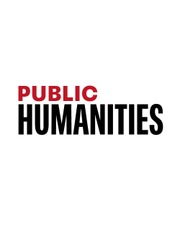- ISSN: 2977-0173 (Online)
- Frequency: 1 volume per year
Public Humanities is a space for scholars, students, activists, journalists, policy-makers, professionals, practitioners, and non-specialists to connect and share knowledge. The journal asks big questions and pursues bold answers that combine rigorous peer-reviewed research with accessible writing. An open access journal for all disciplines, geographies, periods, methodologies, authors, and audiences across the humanities, the journal publishes Themed Issues curated by guest editors and an 'Of the Moment' section on emergent topics. The journal welcomes humanities work from, though not limited to, the fields of Anthropology, Archaeology, Classics, Cultural Studies, Disability Studies, Ethnic Studies, Gender Studies, History, Law, Linguistics, Literary Studies, Performing Arts, Religious Studies, Philosophy, Postcolonial Studies, Queer Studies, Psychology, Sociology, Visual Arts, and Women's Studies.
Content preservation
Cambridge University Press publications are deposited in the following digital archives to guarantee long-term digital preservation:
- CLOCKSS (journals)
- Portico (journals and books)
Digital archives
Digital archives are available for this journal, providing instant online access to a repository of high-quality digitised historical content. For more information, please see the Cambridge journals digital archive.
Mission and values
Public Humanities is mission-driven and ethics-oriented to support impact and broader engagement across and outside the academy and to facilitate cross-disciplinary conversations.
Mission
The mission of Public Humanities is to create a venue for sharing knowledge about the intersections of humanities scholarship and public life.
Values
- Truth: The greatest good at Public Humanities is the accurate representation and responsible interpretation of reality.
- Justice: Public Humanities fights for the ethical use of power on all levels—by individuals, organisations, and governments.
- Education: Sharing knowledge is central to Public Humanities, especially back and forth across the academia/public boundary.
- Accessibility: Public Humanities prioritises accessibility in all forms—open-access, accessible writing styles, and accessibility to people with disabilities.
- Inclusivity: The success of Public Humanities is measured by the diversity of the people and perspectives that appear in the journal and feel seen in the journal.
- Cross-disciplinarity: Public Humanities holds that complex human problems require multiple angles of humanistic interpretation from across the disciplines.
- Internationality: Public Humanities represents the fullness of humanity around the world by inviting readers, topics, and authors from all nations equally.
- Expertise: Public Humanities promotes the value of bringing specialised training and knowledge to bear on emergent issues of public concern.
- Collaboration: Public Humanities holds that truth, justice, and education are higher quality when co-created by multiple people in conversation.
- Engagement: Public Humanities supports scholars who transcend traditional academic spaces to engage with society in active and new ways.
This journal is owned, managed, and published by Cambridge University Press.



